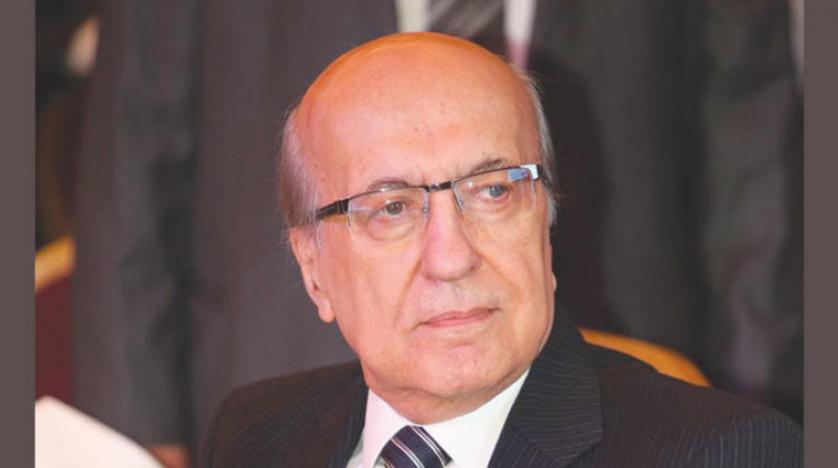Beirut- Association of Banks in Lebanon President Joseph Torbey said the group’s delegation, which visited Washington recently, heard positive remarks acknowledging ABL’s full commitment to the banking sector’s strict regulations.
Torbey confirmed that the delegation met a score of praise for the body’s spent efforts to safeguard the finance and banking sector of the Middle Eastern country, and to counter money laundering, terror funding and tax evasion.
In an interview with Asharq Al-Awsat, Torbey reveals that Lebanon is “wisely handling imposed US sanctions” against the country’s ‘Hezbollah’ group.
“I repeatedly said that they (US sanctions) do not target Lebanon’s banking sector.”
He stressed that confidence in the Lebanese banking sector stems mainly from its full compliance with all international standards on combating money laundering and terrorism financing, and enjoys a strict legal, legislative and regulatory framework.
“Lebanese banks are known to play a leading role in employing good governance and risk management standards, and their adherence to various international standards such as Basel I, II, and III– supporting their flexibility and endorsing investor confidence and that of local and foreign depositors. The commitment of Lebanese banks to implement the FATCA (The Foreign Account Tax Compliance Act ) also contributes to this confidence,” said Torbey.
Addressing all discouraging rumors on the national currency facing fears of dropping, Torbey said that the central bank’s foreign currency reserves stood at around $43 billion and that Lebanon ranked third in the region in terms of the size of the gold reserves.
“Media outlets have recently echoed opinions saying that the monetary situation in Lebanon is on the brink of abyss—these views were based on studies and figures that the central bank did not take long to refute,” said Torbey.
“Documents and reports belonging to international financial institutions that indicate the opposite of the skeptics were presented, going against negative views,” he added.
“Banque du Liban recently undertook financial engineering (late August) to provide services to banks dealing in Lebanese currency at an interest rate of 2 percent,” said Torbey.
Recently enforced facilities were employed under the conditions designed to strengthen Lebanon’s foreign currency assets and national treasury bonds, further stabilizing national economy.
“These funds are used to purchase Lebanese treasury bonds in primary or secondary markets, and provided that these banks employ equivalent amounts in US dollars with the central bank in the form of deposits with maturities of over five years,” said Torbey.
“The public opinion in Lebanon, as well as that of investors, is formed with awareness and a long-established experience that goes against seasonal negativity,” he told Asharq Al-Awsat.
“Leading economic analysts agree that the factors, which contribute to maintaining the stability and stability of the Lebanese lira’s exchange rate, are stronger than ever.”
“These factors include political stability and security of the country, the existence of a national unity government that seeks to adopt reforms, activate roles played by institutions and, most importantly, the large size of the central bank’s foreign currency reserves.”
He also pointed out that a political settlement in Syria will “play a fundamental role in restoring confidence not only to Syria, but also to countries suffering from the consequences of the Syrian war, such as Lebanon.”
“There is no doubt that the return of stability to neighboring Syria would have a positive effect on Lebanon, whether it be by the reopening of land border crossings for Lebanese exports to regional Arab countries, or through the availability of new investment opportunities,” commented Torbey.
Added to that, the banking official said a political solution in Syria will likely yield in an improved business environment and opportunities for launching new projects.
The solution “may help improve the situation of Lebanese institutions operating in Syria, including banks,” he said.
Commenting on the situation of Syrian refugees, Tarabay said a settlement will speed up the process of returning Syrians to their homes, easing the pressure on Lebanese infrastructure and public finances.
Last March, Prime Minister Saad Hariri said Lebanon was close to “breaking point” due to the strains of hosting 1.5 million Syrian refugees, and he feared unrest could spiral from tensions between them and Lebanese communities.
A political Syrian settlement would result in an increase in the flow of capital and remittances of expats to hosting countries, improve tourism, and encourage domestic and foreign investors, thereby accelerating economic growth.
